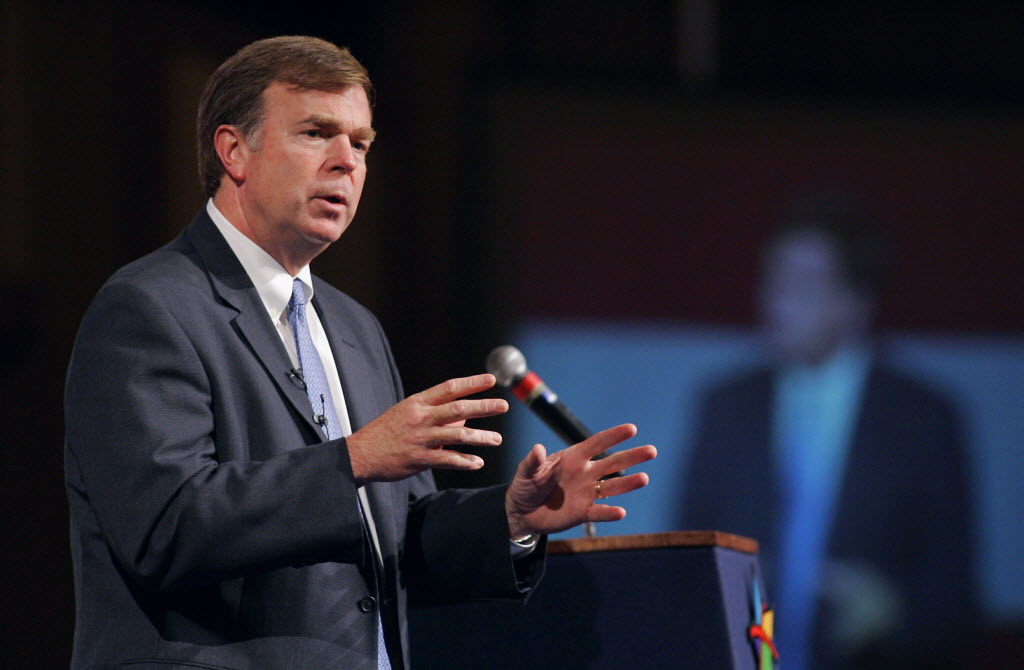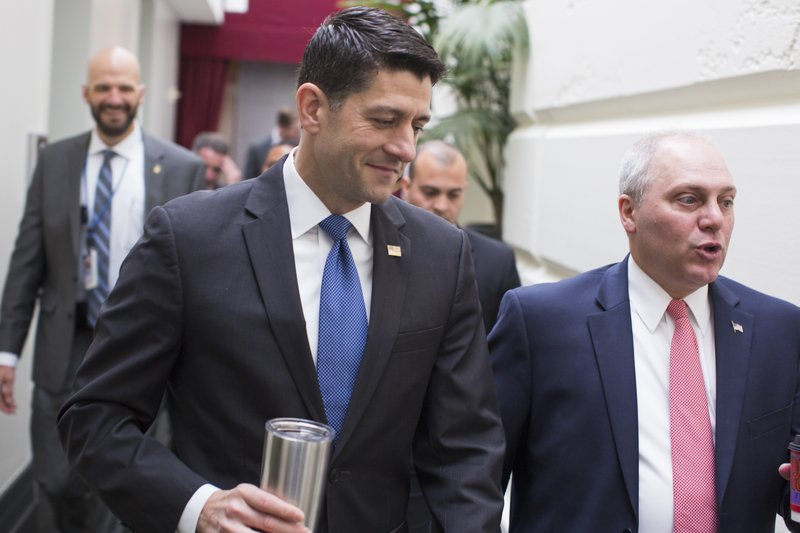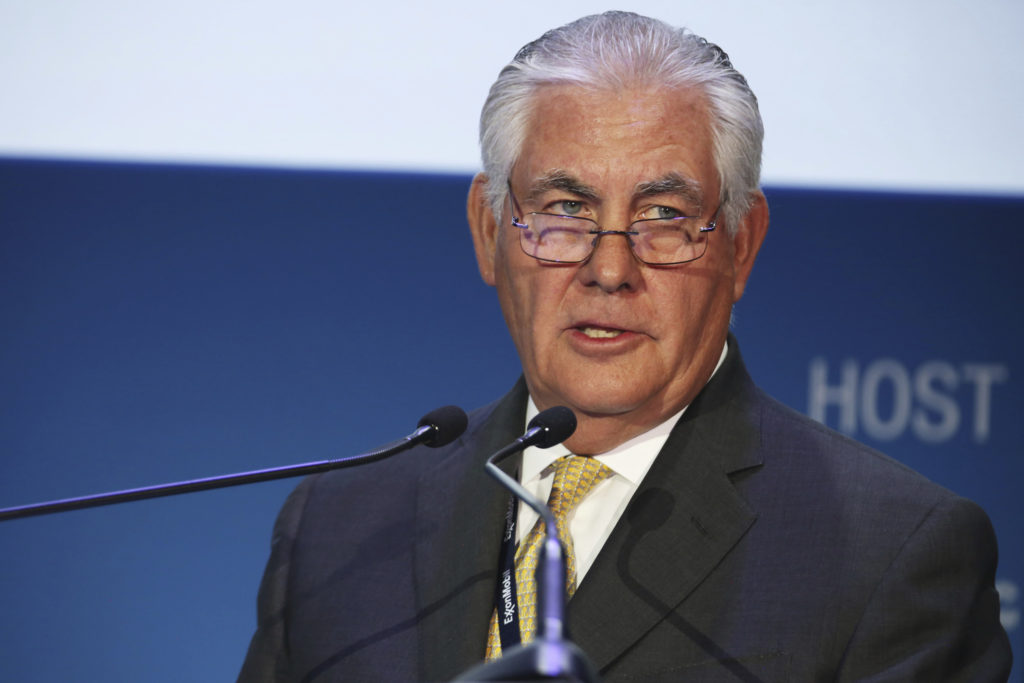Tommy Battles launches first campaign ad for gubernatorial run

Republican gubernatorial nominee Tommy Battle released his first campaign ad in conjunction with announcing his gubernatorial run on Friday. The 2-minute ad, titled “Battle for Alabama,” is an introduction of sorts narrated by Battle himself explaining that he’s a lifelong conservative, small business owner, and has served as the mayor of the city of Huntsville for the past eight years. He makes the argument that “for too long, the people of Alabama have seen our values come under attack.” “Recently those attacks have been coming from the leaders we’ve elected to fight for us,” Battle says in the ad. “Alabama has been given corruption instead of opportunity. Scandal instead of education. Embarrassment instead of pride. Our state’s challenges are real and they can’t wait. Politicians talk. Leaders get things done. It’s time we have a governor who talks less, listens to our people and gets things done… it’s time we make Alabama stronger for all of us.” Battle is one of only two candidates to have officially announced they’re running for the position. Morgan County resident Stacy George also announced his candidacy earlier this month. “This campaign isn’t going to be against anyone,” Battle adds in the spot. “It’s going to be for Alabama.” Watch the entire ad below:
Huntsville Mayor Tommy Battle announces gubernatorial run

For the past eight and half years, Tommy Battle has served the people of Huntsville, Ala. as the city’s mayor. Now the former city councilor-turned mayor looks to extend his service beyond the Rocket City as he announced his Republic bid for Alabama governor. The Birmingham-native says his run will emphasize bringing communities across Alabama’s 67 counties together to create new opportunities in economic development, infrastructure, roads, education, and job creation. “For too long, the people of Alabama have seen our values come under attack. Alabama has endured corruption instead of opportunity. Scandal instead of education. Embarrassment instead of pride,” Battle said in a news release announcing his candidacy. “We’re not just in a battle for Alabama’s values, we’re in a battle for Alabama’s future. I’m running for governor because I’m ready to lead that fight.” Battle is among the first candidates to throw his name in the ring. If elected, the “Big 5” mayor would become the first mayor elected governor in the state’s history. “Our state’s challenges are real and they can’t wait,” Battle added. “Politicians talk; leaders get things done. It’s time we had a state government that talks less, listens to our people, and gets things done for them.” Watch Battle’s first gubernatorial campaign video:
Americans offer hope, prayer in assessing Donald Trump’s 100 days

They are young and old: a high school student who can’t yet vote, a Vietnam vet who did so proudly. They hail from all corners of the United States and very different walks of life: a “downhome boy” from Kentucky, a third-generation Mexican-American from Texas, a stay-at-home mom in Pennsylvania, an Iranian immigrant in Los Angeles. Some oppose Donald Trump and all that he stands for, while others voted enthusiastically for him. Now, they are critiquing him. One hundred days into Trump’s presidency, The Associated Press returned to some of the everyday people interviewed these past months to ask them to write a letter to the president, evaluating the job he’s done so far and looking ahead to the months to come. One supporter tells the president he “might have fallen a little short” — on Obamacare, in particular — but he signs off “with hope.” A refugee implores Trump to “make America more friendly,” but finds optimism in the president’s reaction to this month’s chemical attack in Syria: “I hope this is a turning point.” A Trump objector calls his biggest accomplishment “waking up the public to fight.” She offers this advice: “Make decisions with your heart. It will give you wisdom.” ___ FROM RURAL AMERICA, A SUPPORTER SEES HOPE IN TRUMP’S PRESIDENCY Alan Halsey, 31, is a self-described “downhome boy” from Campton, Kentucky, who along with his wife owns and operates The Swift Creek Courier, a weekly newspaper, and Halsey’s Country Store, “a small business that is a chunk of 1950 set down in 2017.” He says he works seven days a week to try to provide for his family, but is struggling and tired of government regulation and red tape. He wrote: ” … I supported you quite strongly in the 2016 election, even to the point of hanging one of your signs on the front door of my business. I particularly related to your foreign policy of ‘America First,’ and your promise to bring business back to the United States. So far, I believe you’re heading in the right direction on that front, and I find a glimmer of hope in the future of the American economy. “Overall, I think you might have fallen a little short on your first 100 days, but I don’t put a lot of weight into a time frame that small. Provided you serve two terms, 100 days is about 4 percent of that. I still feel that something needs to be done with the Affordable Care Act, although I’m not certain exactly what. … I know many ACA recipients that visit a doctor more than once a week, while those that purchase their own insurance wait until a visit to a doctor is imperative to their survival. There must be a middle to that scenario. …” He signed his letter: “With Hope.” ___ CANCER SURVIVOR WORRIES OVER TRUMP’S PROPOSED BUDGET CUTS, BUT PRAYS FOR HIM Rebecca Esparza, 45, is a freelance writer in Corpus Christi, Texas, who didn’t vote for Trump. A cancer survivor, Esparza fears proposed budget cuts targeting the nation’s premier medical research institution, the National Institutes of Health, will hurt Americans who battle illness. She wrote: “. I cannot say I’m proud of your work so far. However, I have respect for the Office of the President, even if I disagree with your political aspirations. … I could write a dissertation on the many ways I disagree with your political ideals. I’m a third-generation Mexican-American, born and raised in South Texas. Your disdain for Mexico, its descendants and immigrants in general troubles me. Your plan to dismantle the Affordable Care Act, leaving millions of Americans with no other health insurance options, leaves me anguished. “But what distresses me most is your plan to cut nearly $6 billion in funding from the National Institutes of Health (NIH). On Thanksgiving Day in 2001, at age 30, I was diagnosed with ovarian cancer. … Cancer research saved my life. … The cuts you are proposing are disconcerting not only for cancer survivors, but for millions of Americans suffering from many types of chronic and rare diseases. … “I’ll be praying for you, President Trump. … I pray you will carefully consider how your decisions have life or death consequences for hard-working Americans.” Read more about Esparza. ___ ONE-TIME OBAMA VOTER FEELS PRIDE IN TRUMP’S WORK Laverne Jones Gore, 60, owns an executive leadership development company in Cleveland and voted for Trump after previously supporting Barack Obama. Gore calls herself a “middle-class American who happens to be black” and says she felt uncomfortable voicing her opinion during the Obama years, but Trump has “made me proud to be an American again.” Part of a military family — her deceased husband was a Marine and a son graduated from West Point — Gore’s one hesitation these past 100 days is over Trump’s airstrike in Syria. She wrote: ” … Mr. President you have absolutely met my expectations. I actually believe you have shown a strength that I had not given to you, and I am surprised by your willingness to meet head on the challenges and resistance within your governing bodies. I don’t believe you have been afforded an opportunity to really show us what you have to offer in the form of leadership of our nation. “I have no issue with you as it relates to ‘Russians.’ I personally believe most of it was contrived. I have no issue with you as it relates to immigration. I think the issues were in need of control. … I have some reservations about your use of Twitter, but I understand the difficulty you have getting your intended message out. “Yes, you surprised me with the Syria strike and I am not certain how I feel about another war or thought of war. I am still contemplating your action and observing the responses to come from the world theatre as they absorb your full intent.” ___ ‘YOUR SIGNATURE CRUSHED MY FAMILY’ Marjan Vayghan, 32, an artist and writer
Mo Brooks wants El Chapo drug fortune to pay for U.S.-Mexico border wall

Who needs Mexico to pay for the border wall when you have El Chapo? That’s the latest funding idea to build the 1,000 mile-long (1600km) barrier between the U.S. and Mexico from Alabama 5th District U.S. Rep. Mo Brooks and his Senate colleague Texas-Republican Ted Cruz. On Thursday, Brooks filed companion House legislation to a bill that Cruz recently introduced in the Senate. H.R. 2186, the Ensuring Lawful Collection of Hidden Assets to Provide Order (EL CHAPO) Act, would reserve approximately $14 billion in potential assets forfeited to the United States Government as a result of the criminal prosecution of Joaquin Guzman (aka El Chapo), the former leader of the Sinaloa drug cartel, as well as other drug lords, for border security funding – to include the completion of the wall along the U.S.- Mexican border. Brooks, a long-time immigration advocate who has called for the deportation of all illegal immigrants says the bill is a “significant step” toward funding President Donald Trump’s proposed border wall. “No nation can exist without borders and the EL CHAPO Act, which would reserve billions in assets forfeited to the U.S. Government by drug kingpins to be used for border security, is a significant step towards funding President Trump’s border wall, thereby restoring America’s control of her borders,” Brooks said in a press release. “I commend Senator Cruz for sponsoring this financially responsible solution which promotes American security by minimizing the trafficking of drugs and weapons across our southern border.” Cruz echoed Brooks’ sentiments. “Ensuring the safety and security of Texans and all Americans is one of my top priorities and I am glad to work with Mo in this important effort,” said Cruz. “Fourteen billion dollars will go a long way toward building a wall that will keep Americans safe and hinder the illegal flow of drugs, weapons, and individuals across our southern border. El Chapo is currently facing charges in the U.S. after having famously escaped twice from prison in Mexico. He faces a 17-count indictment in the U.S. related to narcotics trafficking, money laundering, and murder. “By leveraging any criminally forfeited assets of El Chapo and his ilk, we can offset the wall’s cost and make meaningful progress toward achieving President Trump’s stated border security objectives, all while easing the impact on our federal budget,” Cruz added. Brooks’ House colleagues Reps. Kevin Brady (TX-08), Tom Garrett (VA-05), Steve King (IA-04) and Louie Gohmert (TX-01) all signed on as original cosponsors of the EL CHAPO Act.
Alabama Democrats criticize proposed new districts

Black lawmakers in the Alabama Legislature are criticizing new district lines that were drawn after a federal court ruled the Republican majority relied too heavily on race in crafting them the first time. Rep. John Knight, a Montgomery Democrat, said Thursday that the proposal is unacceptable. Federal judges in January ordered lawmakers to redistrict after ruling that 12 districts were gerrymandered. The ruling came after the Legislative Black Caucus filed a lawsuit, saying African-Americans were “stacked and packed” into designated districts. Knight said lawmakers could land back in court if a compromise isn’t reached. Reapportionment Chairman Sen. Gerald Dial said the map corrects the problems found by the court. One sticking point could be partisan control of Jefferson County. Democrats want an even split. Republicans would hold the majority under their proposal. Republished with permission of The Associated Press.
Short of support, House won’t vote on health bill this week

The House won’t vote on Republican legislation scuttling much of President Barack Obama‘s health care law until at least next week, a GOP leader said Thursday. The decision deals a setback to the White House, which has pressured congressional Republicans to pass the bill by Saturday — President Donald Trump‘s 100th day in office. “As soon as we have the votes, we’ll vote on it,” House Majority Leader Kevin McCarthy, R-Calif., told reporters late Thursday after leaving a meeting of the House GOP leadership that lasted nearly two hours. He said the vote would not occur Friday or Saturday. White House and Republican leaders had labored all day to wring votes out of resistant moderate GOP lawmakers for the health care measure. But they remained shy of the support they’d need to fully rouse the measure back to life, and it was uncertain when the vote would occur. Centrist Republicans were the primary target of the lobbying, a day after the conservative House Freedom Caucus announced its support for a revised version of the legislation. The fresh backing from that group exhumed the bill from the legislative graveyard, but leaders need moderates who’ve resisted the effort to jump aboard. While the White House was eager for a vote this week, Speaker Paul Ryan, R-Wis., wants to avoid an encore of last month’s embarrassment on the bill. He had to abruptly cancel a vote on an initial version of the bill because of opposition from moderates and conservatives alike. Ryan told reporters that leaders were making progress but added, “We’re going to go when we have the votes.” He noted that he had spoken earlier this year about a 200-day legislative plan because of the complexity of revamping the nation’s health system, its tax code and border security. In at least one instance, Trump and Vice President Mike Pence spoke to one recalcitrant conservative who is now a yes vote. Rep. Mo Brooks, R-Ala., said he’d already decided to switch to backing the revamped bill on Wednesday before he got two phone calls from Pence, who on the second call handed the phone to Trump. “Donald Trump expressed his appreciation for the position I was taking,” Brooks said Thursday. “That gives you a good feeling inside about what you’re doing.” The recast bill would let states escape a requirement under former President Barack Obama’s health care law that insurers charge healthy and seriously ill customers the same rates. They could also be exempted from Obama’s mandate that insurers cover a list of services like maternity care, and from its bar against charging older customers more than triple their rates for younger ones. Overall, the legislation would cut the Medicaid program for the poor, eliminate Obama’s fines for people who don’t buy insurance and provide generally skimpier subsidies. Democrats remained solidly against the legislation, which they said would make health care coverage less available and costlier. House Minority Leader Nancy Pelosi, D-Calif., told reporters that for Republicans, voting for the bill “is going to be doo-doo stuck to their shoe for a long time.” Conservatives embraced the revisions as a way to lower people’s health care expenses. Moderates saw them as diminishing coverage because insurers could make policies for their most ill — and expensive — customers too costly for them to afford. “No bill is going to solve every issue,” said Rep. Tom MacArthur, R-N.J., who crafted the newest edition of the legislation with Rep. Mark Meadows, R-N.C., who heads the hard-line Freedom Caucus. MacArthur is a leader of the roughly 50-member moderate House Tuesday Group, but it is unclear that he has won over many of their votes and he conceded that some lawmakers “are struggling to get to yes.” Two moderate Pennsylvania Republicans affirmed Thursday they would vote no — Reps. Patrick Meehan, who’d been publicly undeclared, and Ryan Costello, who’d said he’d have opposed the original bill. Both cited fears that the new bill would leave people with serious illnesses unprotected. Meehan said he was called recently by Pence and lobbied “by everyone in leadership.” The American Medical Association said it opposed the newly reshaped bill, as it did the original legislation. The doctors’ group said letting insurers boost premiums on people with pre-existing conditions “will likely lead to patients losing their coverage.” Some lawmakers and GOP aides suggested leaders were less than 10 away from the 216 votes Republicans will need to prevail. Republished with permission of The Associated Press.
Rex Tillerson eyes cutting 2,300 jobs at State Department

Secretary of State Rex Tillerson is proposing to eliminate 2,300 jobs as part of a plan to cut more than a quarter of the State Department’s budget for the next fiscal year, officials said Friday. The plan will almost certainly meet resistance from lawmakers opposing President Donald Trump‘s proposal to shrink the size of the federal government. Tillerson’s proposal reduces the number of new diplomats being hired and includes the State Department and U.S. Agency for International Development’s possible consolidation, according to officials briefed on the proposal. The staff cuts would amount to about 3 percent of the department’s roughly 75,000-strong workforce. The proposal is a response to the Office of Management and Budget’s call to slash the State Department and USAID budgets by 31 percent through deep cuts to foreign aid and other programs, said the officials, who weren’t authorized to speak publicly about the as-yet unreleased plan and requested anonymity. Tillerson’s plan would entail a 26 percent budget reduction, they said. In an interview with NPR that aired on Friday, Tillerson said he intended to reorganize the department to make it more efficient and focused. “What we really want to do is examine the process by which the men and women — the career foreign service people, the civil servants, our embassies — how they deliver on that mission,” he said. “We want to hear from them, we’re just about to embark on a department-wide listening mission,” he said, adding later: “I look forward to hearing their ideas. Because I know there’s going to be opportunities to allow them to be more effective. Now, out of that we’ll determine what the State Department looks like.” Cutting more than a quarter of State Department’s current $50.1 billion budget would require dramatic reductions in programs and staffing, cuts that many in Congress and elsewhere oppose. Tillerson’s proposal includes 700 job cuts through buyouts and 1,600 from attrition. The buyouts would be offered first to staffers over the age of 50 with at least two decades of government service, the officials said. The State Department declined to comment on the job reductions, and officials cautioned that plans are tentative until the budget is submitted to Congress next month. But Tillerson has spoken publicly of the need to streamline the agency. He will outline plans to State Department staffers next week, officials said. Tillerson hasn’t addressed State Department workers since his first day on the job in February. As part of the plan, a high-level panel will explore the consolidation of USAID into the State Department this summer, officials said. An outside consultant will be brought in to survey staffers about additional areas where savings might be found. The officials briefed on Tillerson’s proposal this week said the plan also calls for cutting back on hiring new diplomats, from as many as five classes of incoming foreign service officers per year to one or two. It also envisions less hiring of civil service employees, who comprise about 15 percent of the department’s workforce. Numerous members of Congress as well as current and former senior military officers have said they are opposed to massive cuts to the diplomatic budget, which accounts for just over 1 percent of the total federal budget. On Thursday, a bipartisan group of 43 senators urged “robust funding” for the State Department and USAID. “At a time when we face multiple national security challenges around the world, deep cuts in this area would be shortsighted, counterproductive and even dangerous,” they said in a letter to Senate appropriators. Republished with permission of The Associated Press.


